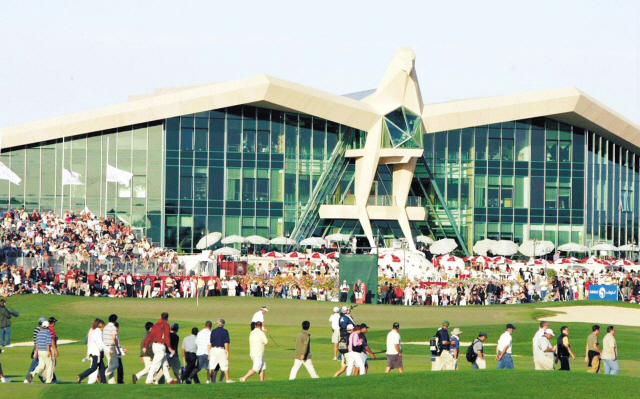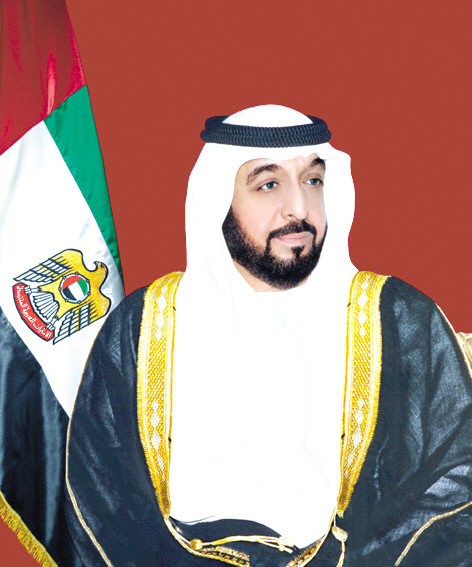
The United Arab Emirates has continued to thrive and prosper, despite economic crises that have affected much of the rest of the world and the political turmoil that has continued to engulf much of the Middle East.
Located in the southeast corner of the Arabian Peninsula, with coastlines both on the Arabian Gulf and on the Gulf of Oman, seven emirates of the UAE, formerly known as the “Trucial States,” came together following the withdrawal of Britain after 150 years. Led by the UAE’s founding father, the late Sheikh Zayed bin Sultan Al Nahyan, the seven rulers decided to form a federation, to work together to bring prosperity and development to their people. Aided by the vision of Sheikh Zayed, the UAE has since emerged as one of the fastest-growing and most stable countries in the region.
Located in the southeast corner of the Arabian Peninsula, with coastlines both on the Arabian Gulf and on the Gulf of Oman, seven emirates of the UAE, formerly known as the “Trucial States,” came together following the withdrawal of Britain after 150 years. Led by the UAE’s founding father, the late Sheikh Zayed bin Sultan Al Nahyan, the seven rulers decided to form a federation, to work together to bring prosperity and development to their people. Aided by the vision of Sheikh Zayed, the UAE has since emerged as one of the fastest-growing and most stable countries in the region.

Sheikh Zayed himself died in 2004 after over 30 years as president. The process of growth, however, has continued under the leadership of his son and successor as President, Sheikh Khalifa bin Zayed Al Nahyan; Vice President, Prime Minister and Ruler of Dubai, Sheikh Mohammed bin Rashid Al Maktoum; their fellow members of the UAE’s Supreme Council of Rulers; and the Crown Prince of Abu Dhabi and Deputy Supreme Commander of the UAE Armed Forces Sheikh Mohammed bin Zayed Al Nahyan. Despite the continuing problems faced by the global economy over the last few years, the UAE, thanks to its wise economic policies, has continued to develop successfully, with further growth confidently predicted for the years ahead.
In a speech to the Federal National Council (parliament) at the beginning of November, Khalifa emphasized the government’s commitment to upholding the country’s constitution and the rights and freedoms for citizens and other residents.
This, he said, had helped to make the UAE “a paradise for citizens and others. All live in peace in a tolerant community that is free from segregation and injustice.”
This applied, he said, both to men and women, thanks to a firm government policy that women should be given all necessary support to allow them to display their ability and responsibility. As a result, he noted, many now occupy leading positions,
Today, women account for around 70 percent of all university graduates in the country and fill around two-thirds of government jobs, providing four members of the Cabinet, several FNC members, ambassadors and even air force pilots, evidence of the country’s success in empowering its women.
Urging Council members to play their role as “a supportive and controlled authority to further strengthen the government with its vision and innovative ideas,” the president went on to pledge continued change, within the framework of the country’s traditions and norms, to develop the scope for greater popular participation.
Noting that the role of the FNC had already developed since the launching of a gradualist program of political empowerment in 2005, particularly since the holding of a second round of elections for the Council’s members in 2011, the president told the FNC: “Your membership in this Council is a great trust and responsibility. Governance here belongs to those who have bestowed their trust on you (the electors). So be solicitous to maintain your eligibility to have received this trust and be committed to the interests of the country and the citizens.”
Members must work, he said, to protect the bonds that link all segments of UAE society, “in our quest to entrench the culture of consultation and participation in decision making, as well as to emphasize the importance of individual opinions in formulating the opinion of society.”
The guiding principles that underlie the success of the state, originally laid down more than 40 years ago, remain fundamental elements in the policies of the UAE’s government. One was that the resources deriving from the exploitation of Abu Dhabi’s oil and gas reserves should be shared across the country in the development of its infrastructure. A second was that, as Sheikh Zayed put it, “the country’s real wealth is its people,” and that particular effort, in consequence, should be made to ensure that they benefit from the best available access to education, health care and social services, and to equip them, both men and women, to play their full part in the country’s growth.
A third principle, in recognition of the fact that the UAE was a country that would attract people of many nationalities, was that it should be a country where a spirit of tolerance between those of different communities and faiths should prevail, yet one where its own national culture and heritage should be both cherished and protected. Although firmly committed to the Islamic faith of its citizens, the UAE is now home to over 40 churches and cathedrals as well as places of worship for other faiths.
And the fourth principle, looking outside the country, was that the UAE was to seek to promote dialogue, cooperation and the resolution of conflicts, both within the Arab world, the broader Islamic community and the wider international community.
All have proven to be of great importance over the course of time.
In terms of the UAE economy, although signs of recovery from the crisis that began in 2008 began to become apparent during 2011, the real effect of the turnaround became clearly visible in 2012 in all key sectors of the economy. The trade, aviation, tourism and retail sectors have seen substantial growth, along with the oil and gas industry, benefiting from high international prices. Figures from the Federal Customs Authority indicate that during the first six months of 2012, the country’s non-oil foreign trade grew by 10 percent over the equivalent 2011 figures to 499 billion dirham ($135.9 billion). Despite the impact of international sanctions on one of the country’s main trading partners, Iran, exports and re-exports grew by 40 percent over the same period to 77 billion dirham, while imports grew by 12 percent to 321.4 billion dirham.
Overall, according to Economy Minister Sultan Al Mansouri in early November, the UAE’s economy is expected to grow by 3.5-4.0 percent in 2012, compared to growth of around 4.2 percent in 2011, an impressive achievement at a time of growing difficulties for the global economy. During 2011, the UAE booked a consolidated budget surplus of 36.2 billion dirham, 2.9 percent of nominal gross domestic product of 1.32 trillion dirham.
The latest updates from the country’s three main airports, Abu Dhabi, Dubai and Sharjah, have all reported double-digit growth in the number of passengers. The UAE’s busiest airport, Dubai, is expected to record well over 50 million passengers during the course of the year, on its way over the course of the next few years to becoming the busiest airport in the world. The growth is broadly in line with that of the three UAE national carriers: Emirates in Dubai, whose profits rose by 20 percent in the first half of 2012; Etihad in Abu Dhabi; and Air Arabia in Sharjah. Air Arabia’s turnover for the first nine months of 2012 was up by 126 percent over the same period in 2011, an indication of the way in which the airline, the first and largest low-cost carrier in the region, is demonstrating the success of its business model. At a time of crisis for the global aviation industry, it is also an indication of the strength of the sector in the UAE that all three carriers are now profitable. Emirates, the largest, now flies to nearly 130 destinations in 74 countries, and has one of the largest networks in the world.
Elsewhere in the transport sector, the biggest event of the year has been the formal opening of Abu Dhabi’s new Khalifa Port at Taweelah, between the capital and Dubai, It is now set to become the country’s second-largest economic gateway after the Jebel Ali Free Zone, which continues its own growth with nearly 7,000 companies now registered there. The nearby Dubai World Central, Dubai’s new airport, which covers an area of around 140 square kilometers, will be the world’s largest when completed.
-
Articles by Korea Herald












![[Kim So-hyun] The quiet taxi driver from Paris](http://res.heraldm.com/phpwas/restmb_idxmake.php?idx=644&simg=/content/image/2024/04/25/20240425050891_0.jpg&u=)







